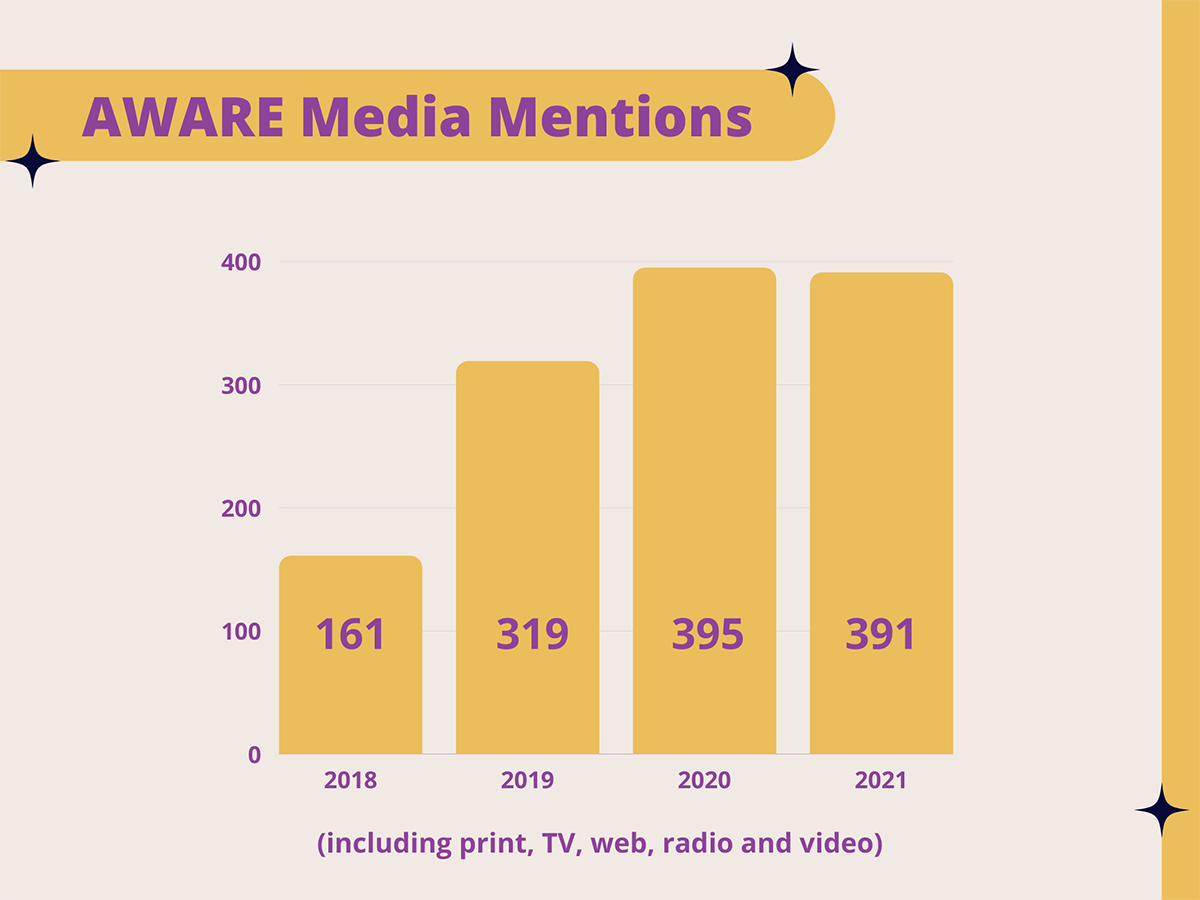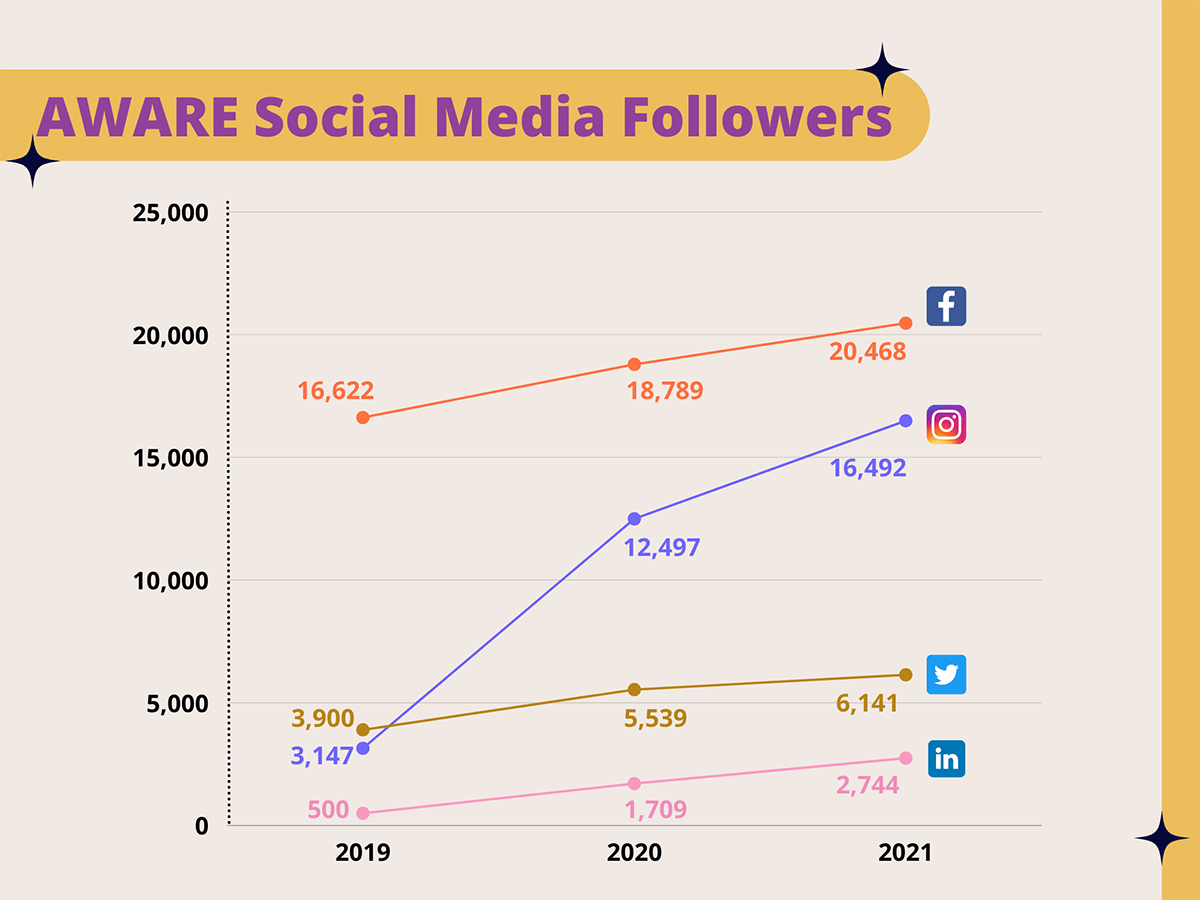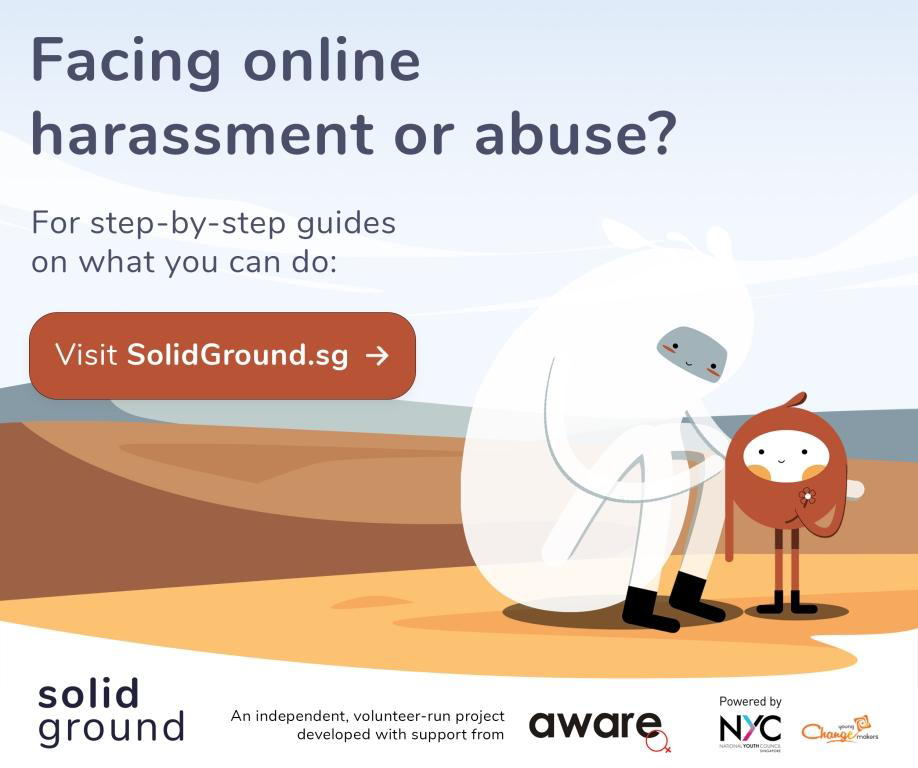menu
SG Women: Omnibus
Report and “Reimagining
Equality” Community
Policy Wishlists
Discrimination
and Harassment
Charter
Gender-based
Violence
News and on
Social Media
Advocacy Successes
The Year of Celebrating SG Women: Omnibus Report and “Reimagining Equality” Community Policy Wishlists

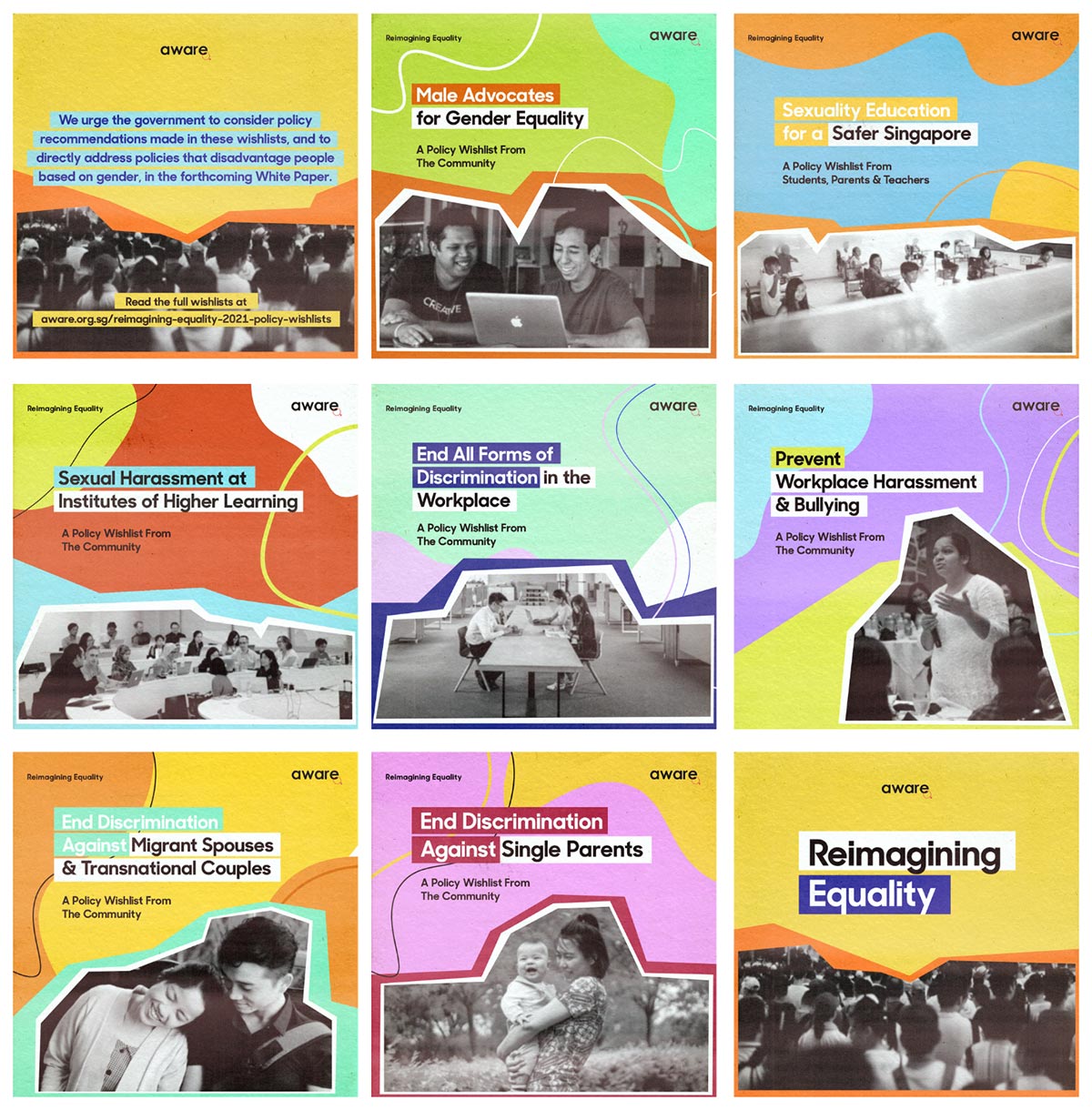
Between March and May, we held 29 virtual community discussions, attended by 191 participants: single parents; migrant spouses; students, parents and teachers with opinions on sexuality education; individuals who had experienced workplace discrimination, harassment and/or bullying; students at Institutes of Higher Learning concerned about campus sexual harassment; and men interested in advocating for gender equality. Discussions explored policies related to creating safe work and school spaces, tackling discriminatory practices across sectors, navigating legal obstacles for non-traditional families and much more.
The series of seven co-created policy wishlists received coverage from media outlets such as The Straits Times, TODAY and The New Paper.
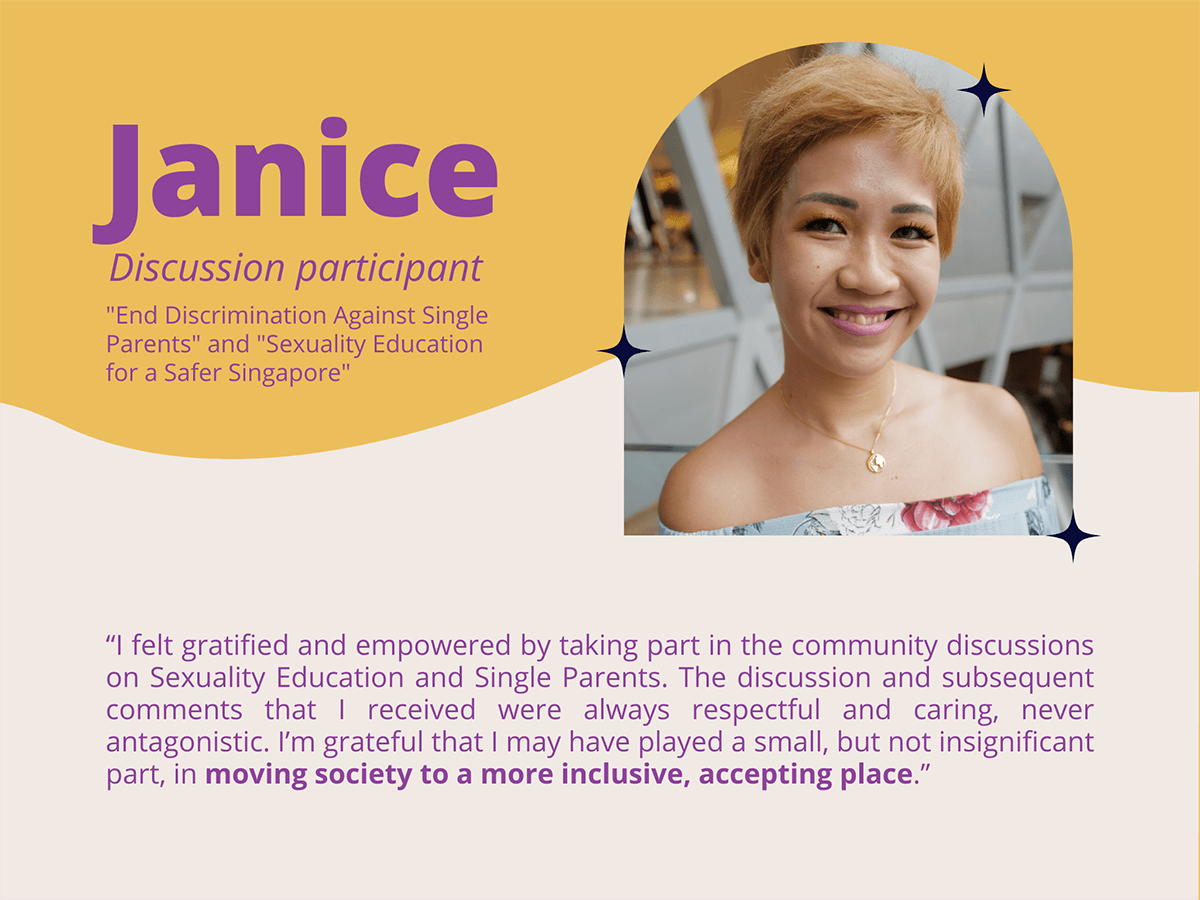
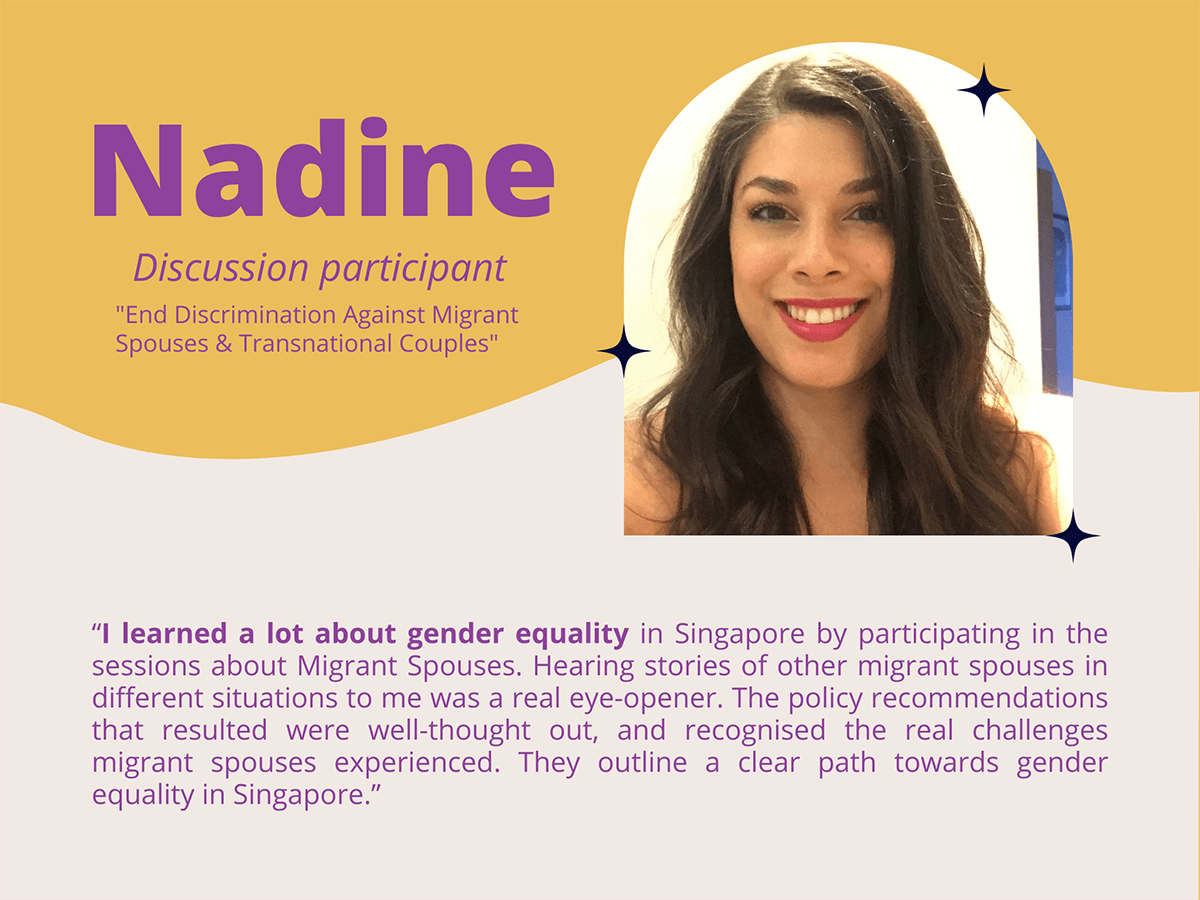
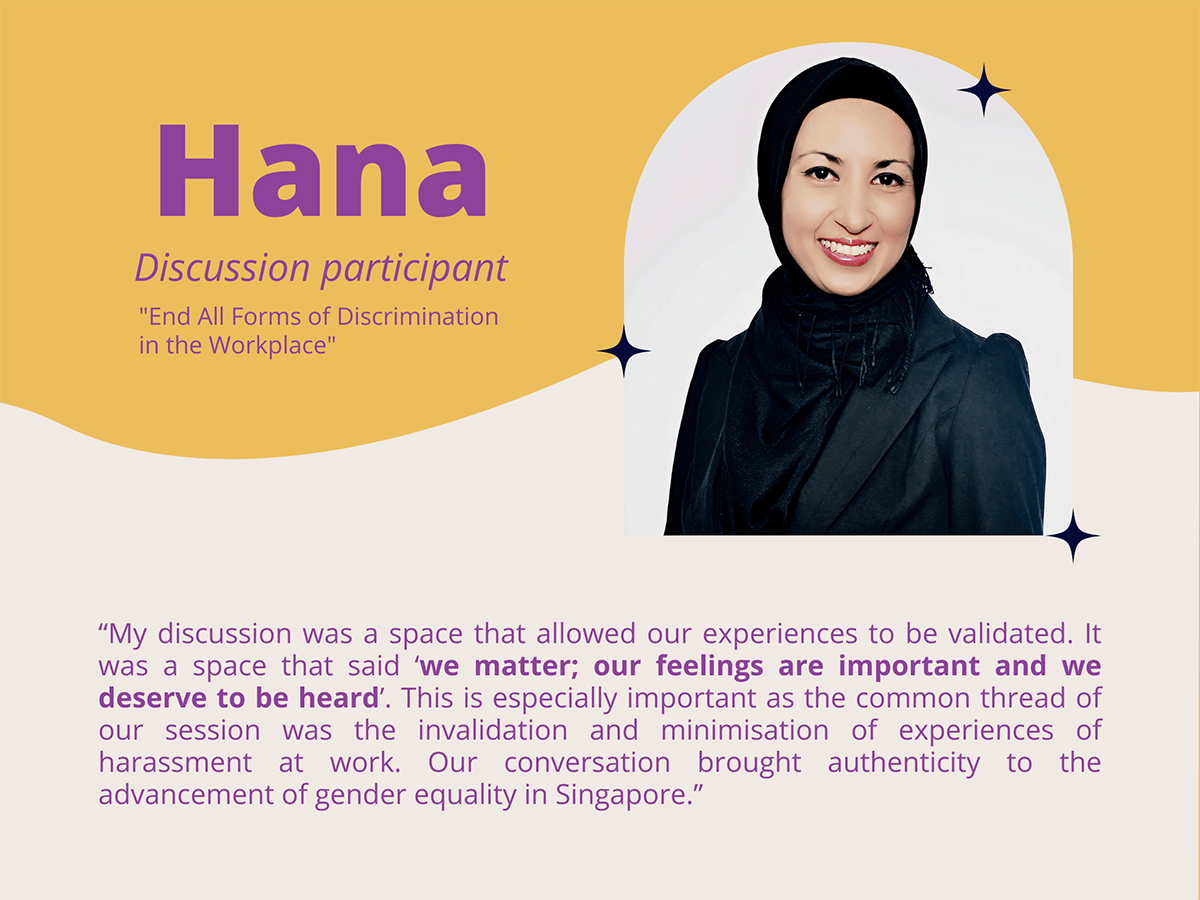
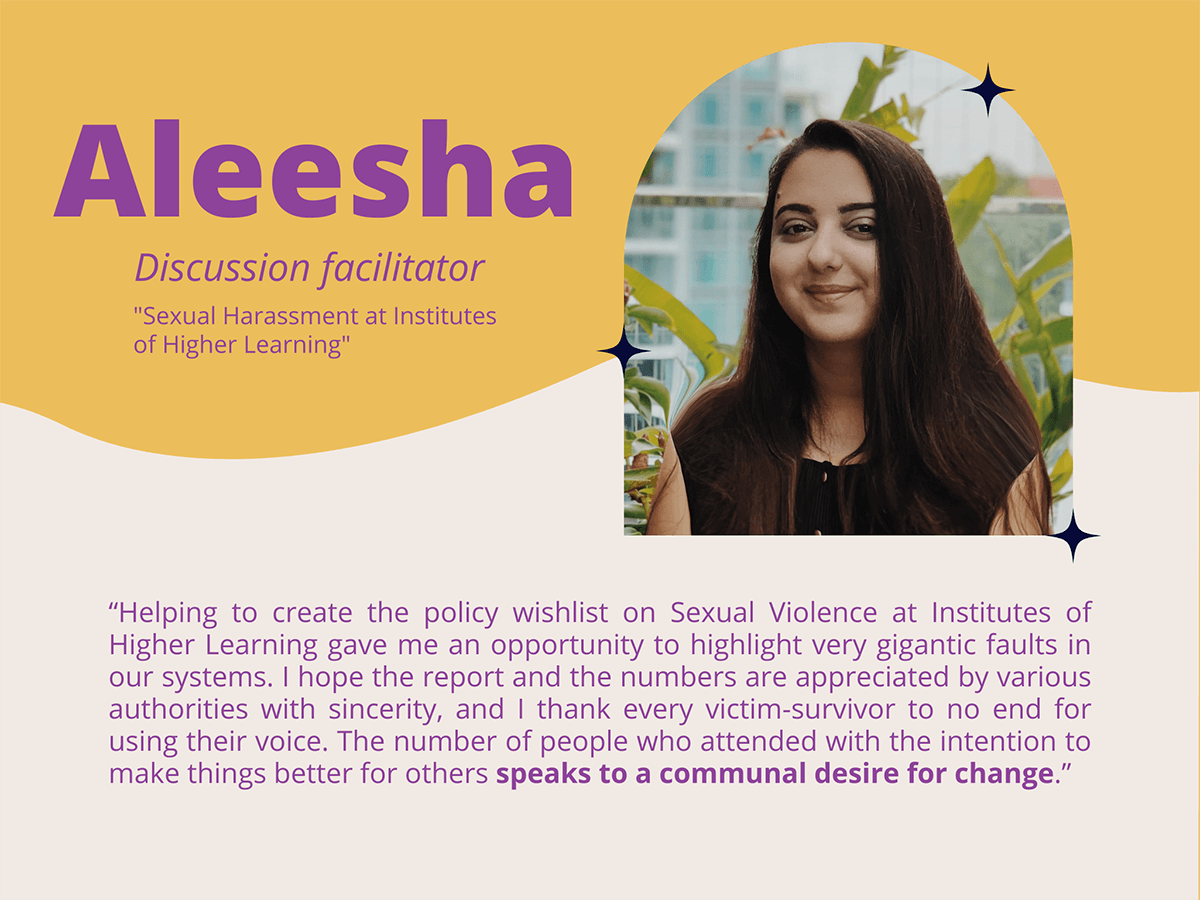
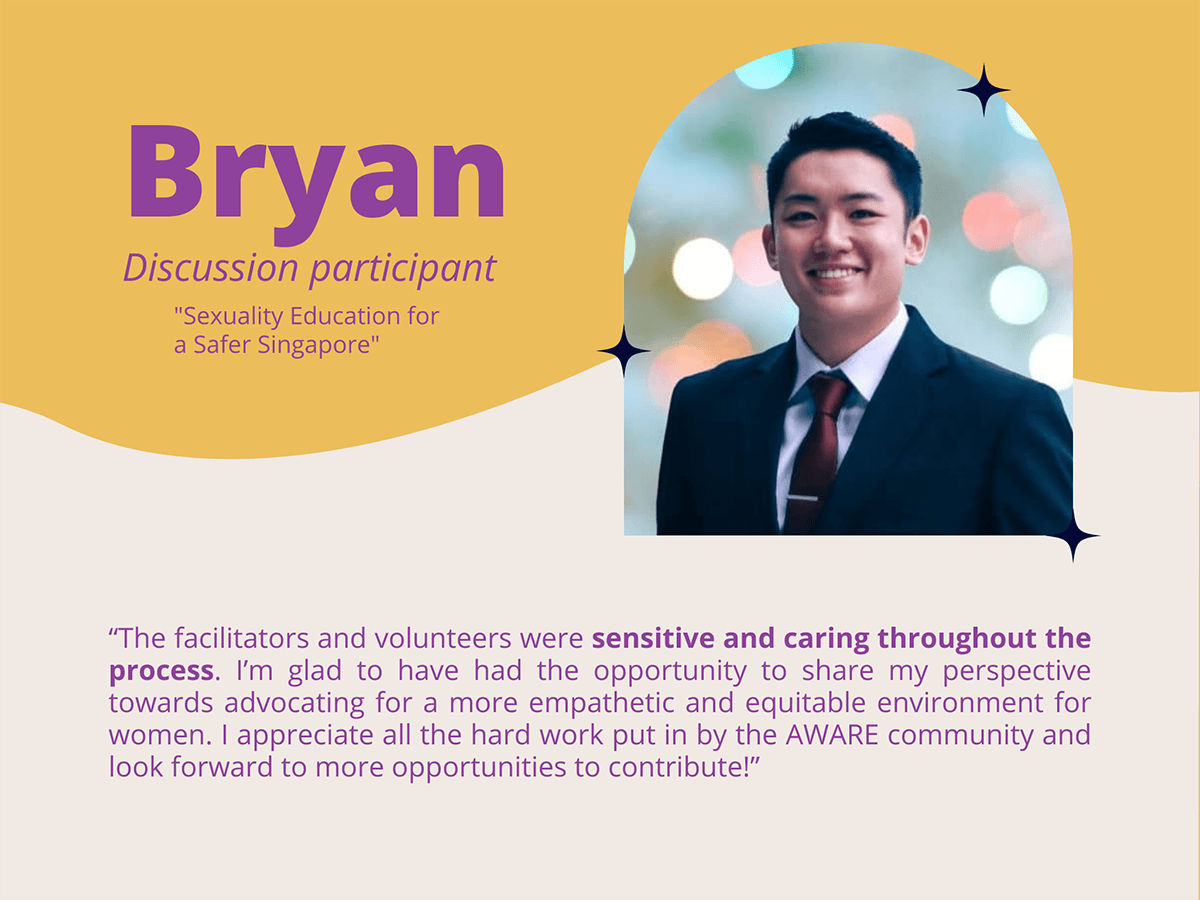
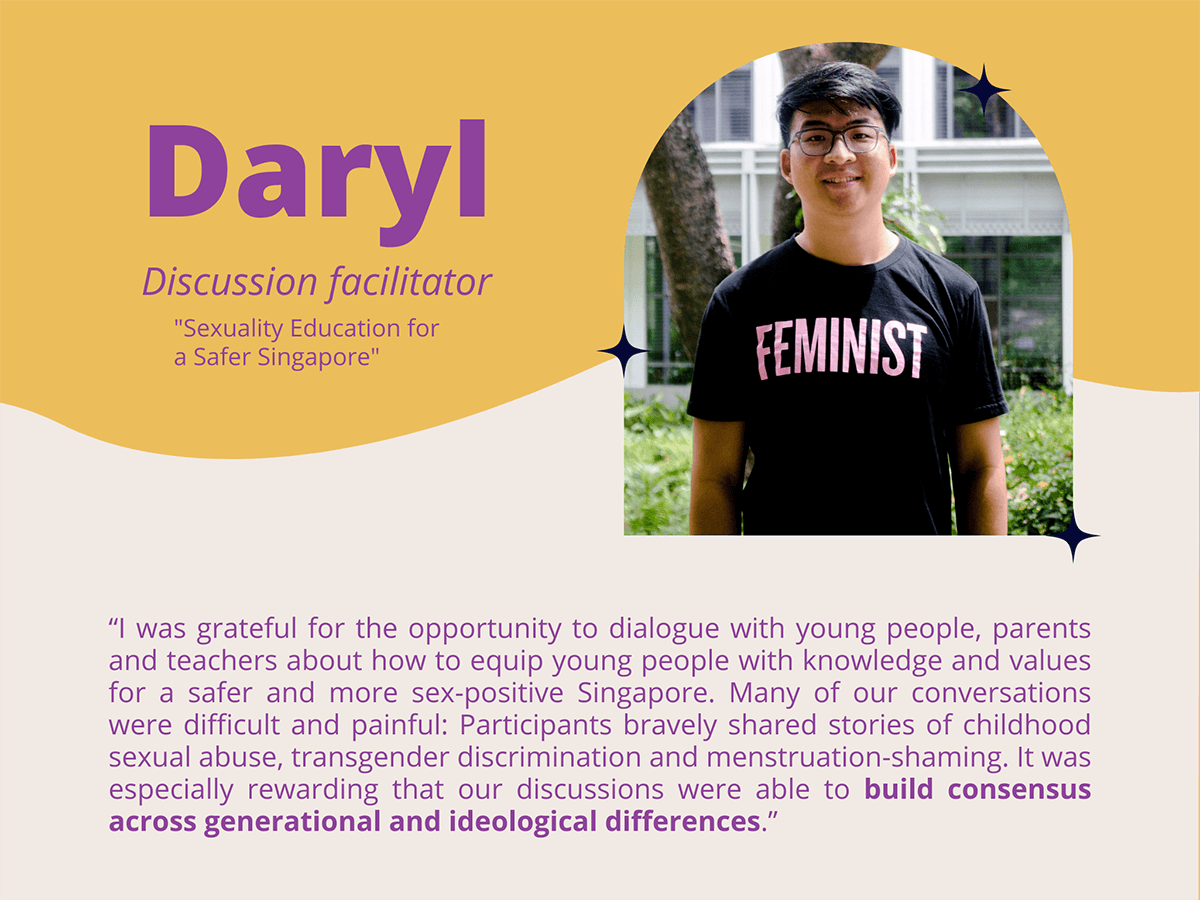
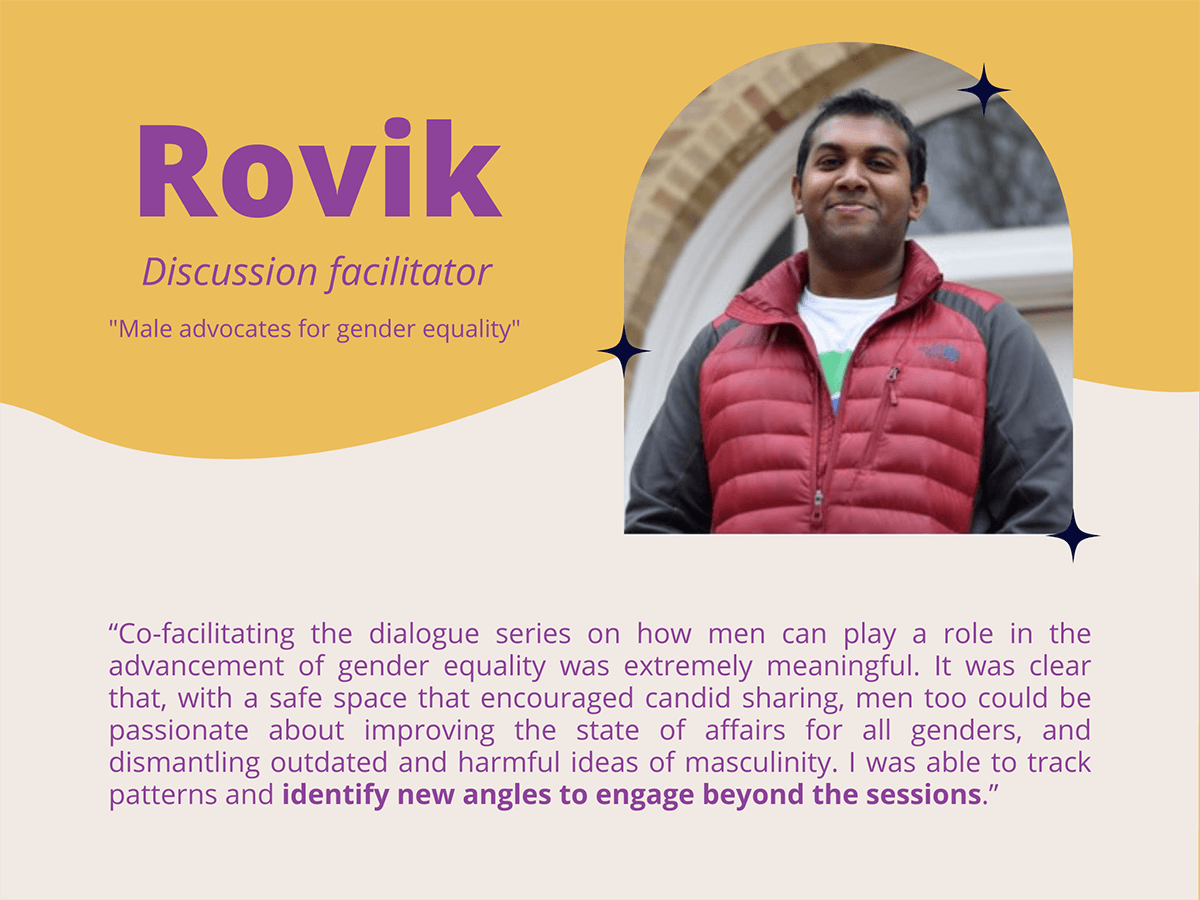
The second component of our output towards the gender equality review was an omnibus report, titled “An Omnibus on Gender Equality”. Published on 29 July, this comprehensive 242-page report brought together 88 recommendations on issues faced by women over their life course, from youth to employment, motherhood, caregiving and retirement. Topics tackled in the omnibus report were:
- women, work and care, including the gender pay gap and female representation in the labour market;
- supporting older women, including ageing women’s retirement adequacy;
- gender-based and other forms of discrimination, including discrimination against pregnant women, single parents, disabled women, domestic workers, LGBTQ+ persons and Muslim women;
- violence against women, including campus sexual violence, workplace sexual violence and technology-facilitated sexual violence;
- sexuality education;
- men and gender equality;
- national machinery to promote gender equality, such as the pledge and Constitution;
- the Women’s Charter; and
- procedural issues in reporting sexual violence.
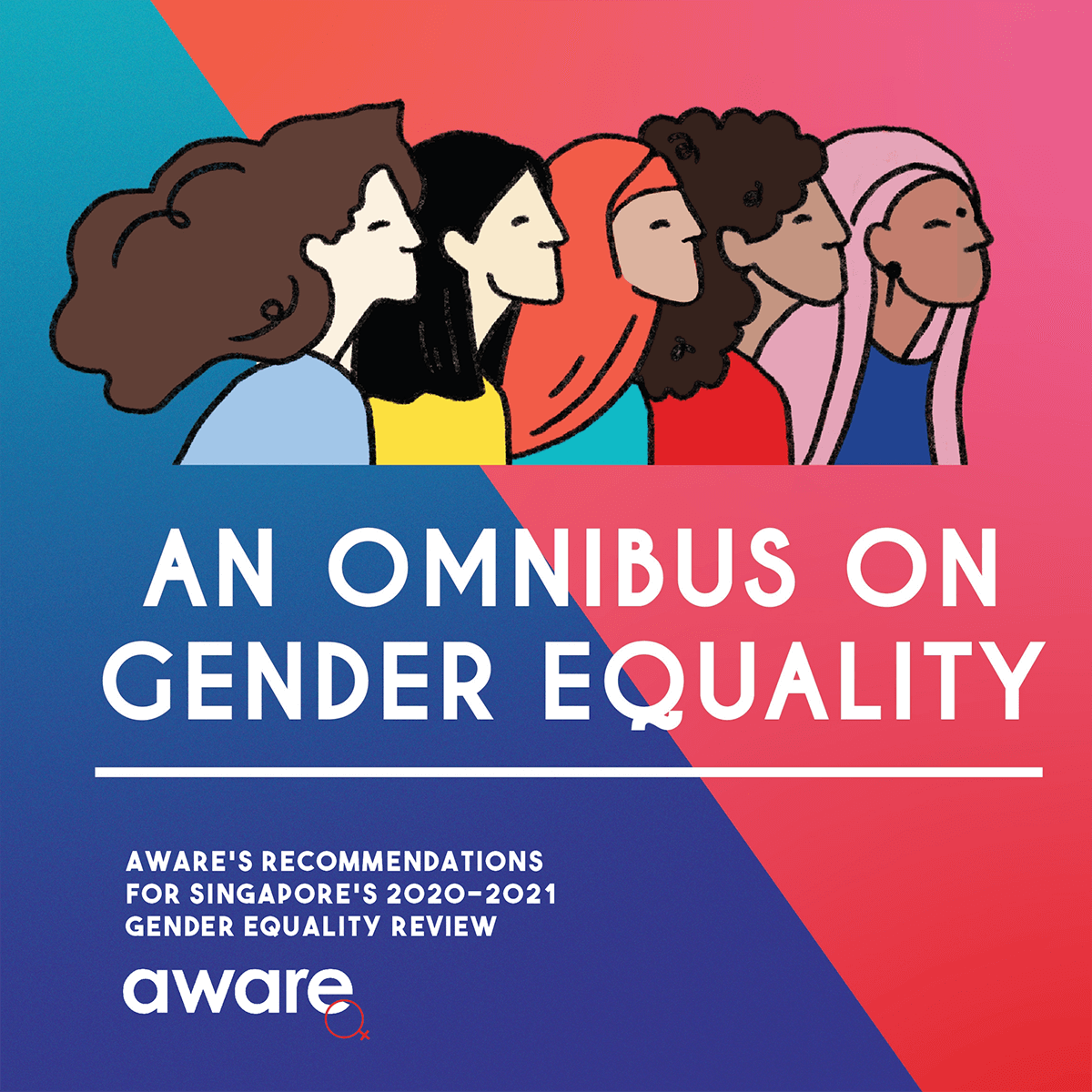
Workplace Discrimination and Harassment

Tackling Discrimination at Work
At the National Day Rally 2021, Prime Minister Lee Hsien Loong announced a new anti-discrimination legislation that will enshrine existing TAFEP guidelines into law. This was a huge milestone after years of advocacy by civil society organisations, who have long urged legislators to send a strong signal that workplace discrimination is unacceptable, and to enhance legal protections for victim-survivors.
As we await the legislation’s passing, we identified some crucial considerations for policy-makers, both on social media and in Forum letters:
- Take into account employees’ perspective when drafting law on workplace discrimination”, The Straits Times, 17 September, 2021
- “Anti-discrimination legislation should be comprehensive”, The Straits Times, 19 November, 2021
To further discuss the implications of this historic legislation on vulnerable communities, we held a virtual panel on 28 October titled “Fair Enough? Towards an anti-discrimination law for Singapore”, with a total of 150 attendees.

The event was moderated by Professor Tommy Koh Ambassador-at-Large at the Ministry of Foreign Affairs, Rector of the Tembusu College at NUS and Special Adviser to the Institute of Policy Studies. David Black and Adelene Ong of Blackbox presented the findings from a new survey on workplace discrimination: Of 1,000 respondents aged 15 and above in Singapore, 19% and 15% said that they had personally experienced sexism and sexual harassment in the workplace respectively. Afterwards, panellists Corinna Lim (AWARE’s executive director), Cassandra Chiu (board member at Disabled People’s Association) and Deryne Sim (spokesperson and committee member at Pink Dot) discussed their communities’ struggles with discrimination, and how the upcoming legislation might improve the situation.
PM Lee also announced at the National Day Rally that Muslim nurses would be allowed to wear the tudung with their uniforms, instead of having to choose between religious expression and work. This revised policy benefits 7,000 staff in total. We cheered on this policy change, and suggested that the rule apply to other professions with uniforms, too.
Workplace Sexual Harassment
In 2021, AWARE led two pioneering research projects into the sobering issue of workplace sexual harassment (WSH). In January, we released our findings from Singapore’s first-ever nationally representative survey on WSH, conducted in collaboration with market research company Ipsos. Respondents comprised 1,000 Singapore citizens and Permanent Residents who had been engaged in paid work in the previous five years.
This survey revealed sobering statistics on WSH, including its prevalence and the lack of awareness of what forms of behaviour constitute harassment: When respondents were asked “Have you been sexually harassed in the workplace within the last five years?”, only 1 in 5 responded in the affirmative. However, 2 in 5 reported that they had indeed experienced WSH after being given specific examples. The survey also found that only 30% of WSH survivors made official reports about their experiences. These findings were widely covered by major news outlets, including vernacular outlets. Two TODAY letters were also published in response to the survey, calling for stronger legislation against WSH and enhanced protection for freelancers and self-employed persons.
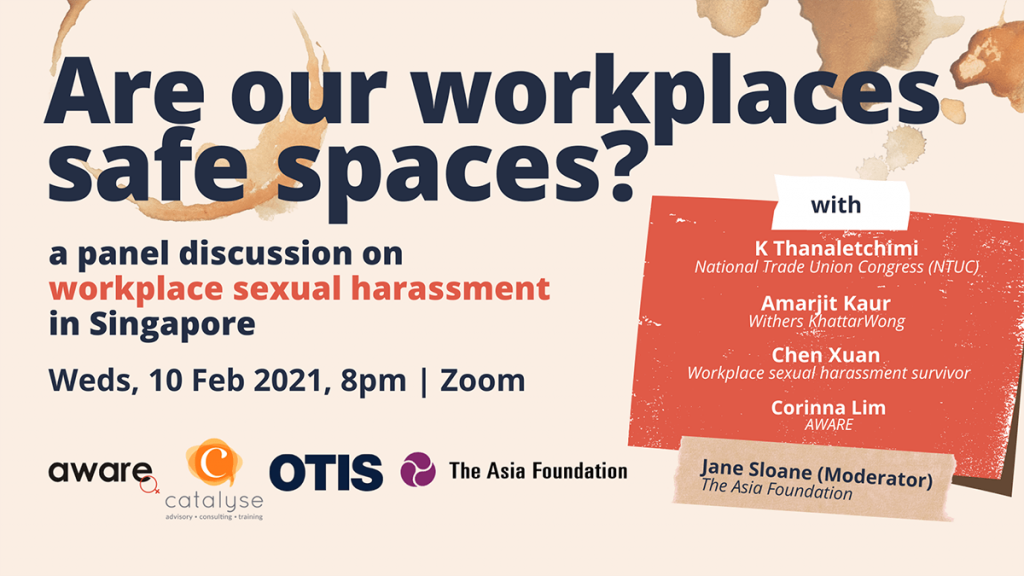
Following the survey launch, we hosted a virtual event “Are Our Workplaces Safe Spaces? A panel on workplace sexual harassment” on 10 February. On the panel were AWARE Executive Director Corinna Lim; a WSH survivor; Withers KhattarWong LLP partner Amarjit Kaur; and K Thanaletchimi, Vice President of the Central Committee at National Trade Union Congress. This discussion was moderated by Jane Sloane of The Asia Foundation. With more than 90 participants in attendance, panellists called for stronger legislation to hold organisations accountable for WSH.
Then, in December, we released a research report titled “‘I Quit’: Career and Financial Effects of Workplace Sexual Harassment on Women in Singapore”. The research drew upon in-depth interviews with 39 working women who had experienced WSH in Singapore in the past five years, this time investigating the oft-overlooked career and financial impacts of harassment.
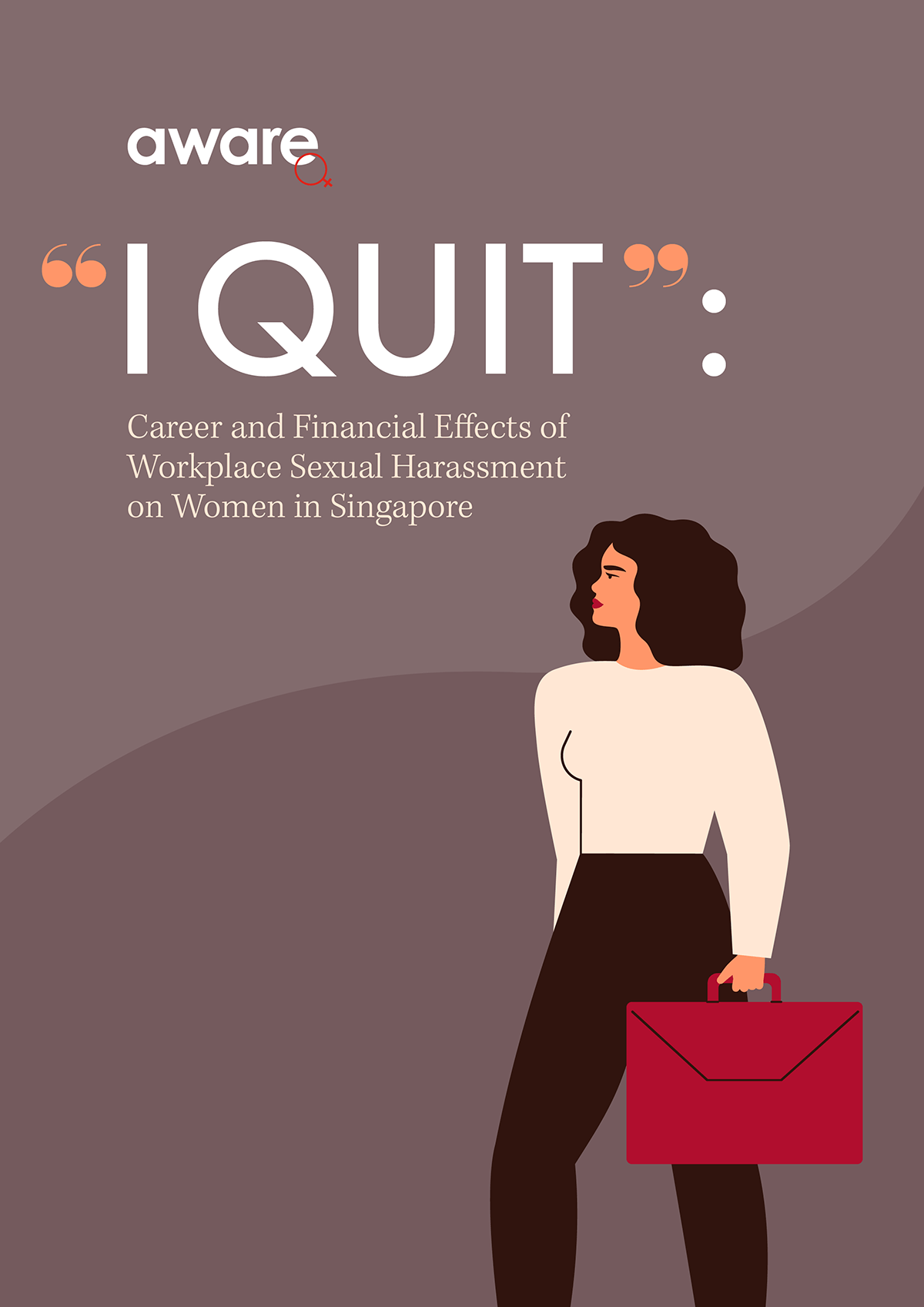
Throughout the year, AWARE staff also wrote several letters and op-eds on WSH:
- “Sexual harassment: How workplaces can be made safer”, The Straits Times, 26 January, 2021
- “Why anti-harassment programmes are often ineffective”, The Business Times, 5 February, 2021
- “Commentary: Contrary to what we expect, women in senior roles face more workplace sexual harassment”, Channel NewsAsia, 2 March, 2021
- “What does workplace sexual harassment do to a victim’s career?”, The Business Times, 17 December, 2021
- “Reporting workplace sexual harassment: Dealing with retaliation”, The Straits Times, 24 December, 2021
The Women’s Charter

In June 2021, AWARE responded to the Ministry of Social and Family Development’s public consultation paper on how to better support children and divorcees, and reduce acrimony in divorce. In our submission, we welcomed MSF’s proposed introduction of an amicable divorce option and made several recommendations, including reducing the three-year time bar for divorce, strengthening Singapore’s maintenance regime, and enhancing support for divorcing migrant spouses. The proposal of amicable divorce gained a lot of support in the public, with multiple articles and letters arguing in its favour. We also wrote an op-ed in The Straits Times (22 July) to debunk some of the myths around it.
To help women better understand the civil divorce process, we held a virtual webinar with Lim Shu Yi from Parwani Law LLC on 25 May. Eighty-eight attendees tuned in for the hour-long session, which imparted a clear picture of the divorce process, as well as practical solutions and resources for women to better navigate legal proceedings. Most attendees shared that they found the session to be informative and helpful, and that they appreciated Shu Yi’s empathetic, knowledgeable demeanour.
Technology and Gender-based Violence

Violence in a Click
With the High Commission of Canada’s support, AWARE hosted a virtual panel, “Violence in a Click—how do we close the tab on tech-facilitated sexual violence?”, on 6 March. The panel included Tan Joo Hymn, project director of AWARE’s Birds & Bees programme, as well as the two winning teams from AWARE’s Taking Ctrl, Finding Alt contest: researchers Catherine Chang and Holly Apsley, and Lee Yi Ting. Moderated by Projects Manager Filzah Sumartono, the event was livestreamed on Twitter in addition to taking place on Zoom.
During the discussion, the panellists delved into tech-facilitated sexual violence’s impact on victim-survivors and possible recourse options. The engaging conversation saw 50 attendees on Zoom and around 2,600 views on the Twitter livestream. In feedback, attendees expressed appreciation for “the concrete explanations on existing recourse routes in Singapore and other countries”.
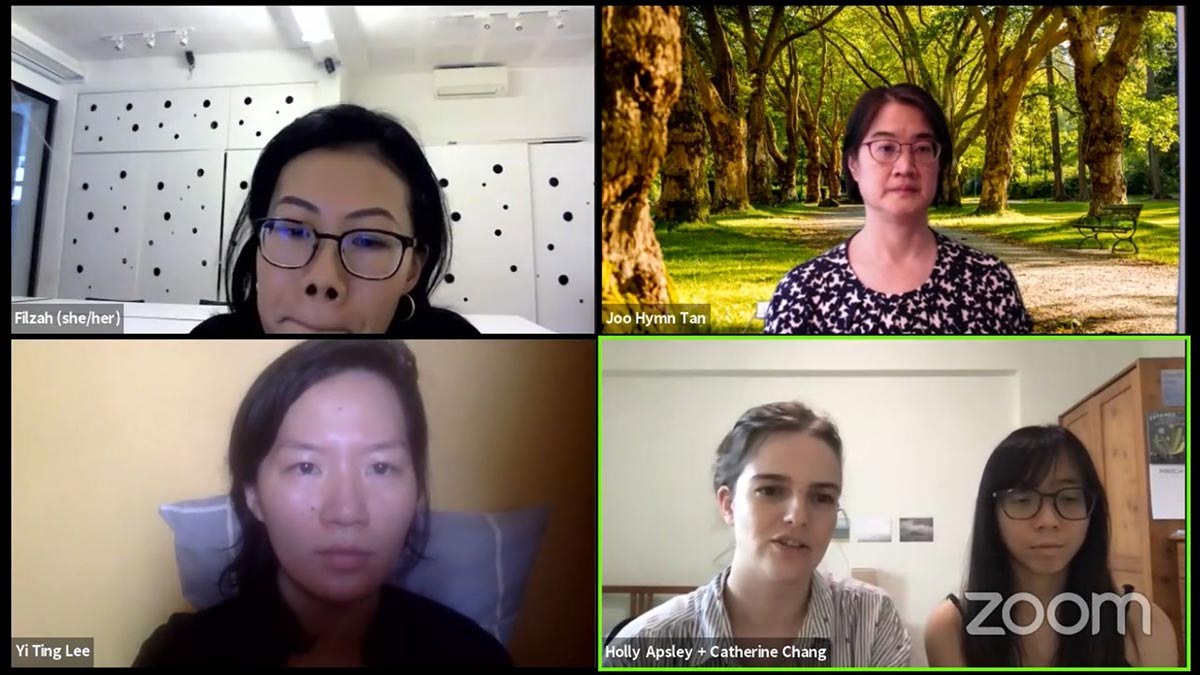
Solid Ground
In July 2021, researchers Catherine Chang and Holly Apsley from the Lee Kuan Yew Centre for Innovative Cities, Singapore University of Technology and Design launched their website, solidground.sg, developed in consultation with AWARE. Solid Ground guides users through steps they can take when experiencing any of nine common types of online harassment. It also lists support resources in Singapore and online. We celebrated its launch with a Twitter Spaces conversation on 16 July about the website, which also dove into SACC’s 2020 statistics on technology-facilitated sexual violence.
Since then, Holly and Catherine have been invited to talk about TFSV on the Something Private podcast and participated in two Law Society Pro Bono Services webinars.
Quilt.AI
From April to August, we embarked on an innovative research collaboration with technology firm Quilt.AI. Using a proprietary machine-learning model, our study analysed online discourse in Singapore around gender-based violence, as well as opposition narratives to gender equality, from Facebook, Instagram, Twitter, YouTube, Reddit and HardwareZone. We identified three main types of “myths” employed to justify gender-based violence. We also identified resentment over mandatory National Service as the top gender-equality opposition narrative. Finally, we found that misogynistic comments garnered significantly higher engagement on Twitter than non-misogynistic comments. The findings made for (aptly enough) one of our most popular social media posts of 2021. Furthermore, in January 2022, the study was cited in Parliament by MP Louis Ng, who argued that the baseless opposition narrative that the law unfairly disadvantages men was a good reason to rename the Women’s Charter the “Family Charter”.
AWARE in the News and on Social Media

